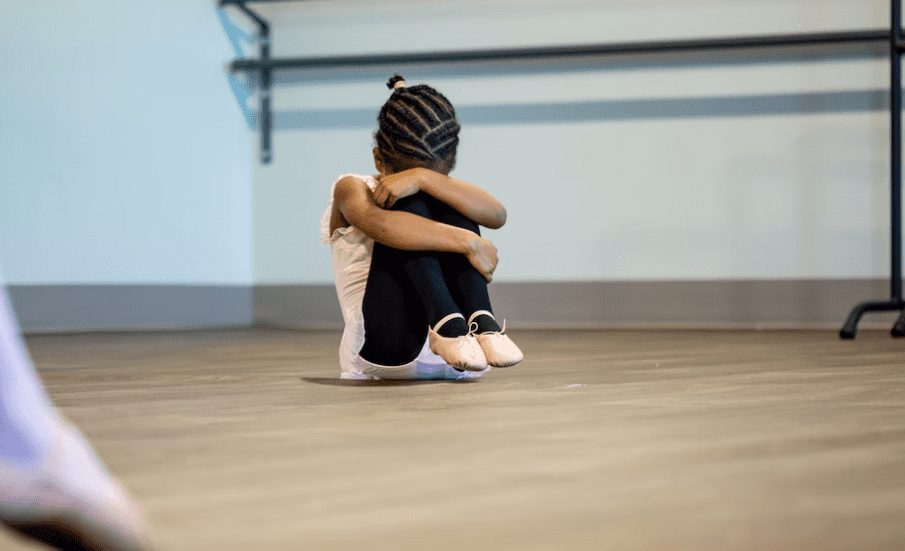When Meditation Causes Anxiety
Learn how to avoid stress and when meditation causes anxiety.

Selfpause Affirmation App
Download the app to get 1,000’s of affirmation meditations and everything you need to write, record and listen to your own.
Meditation can be difficult if you suffer from anxiety. But if you can focus on your breathing, you can calm your mind and avoid stress. If you do experience anxiety during meditation, you need to stop and think about it. Instead of focusing on what’s bothering you, try focusing on your breath and your breathing rhythm.
Give the feeling your full attention

During meditation, one way to decrease anxiety is to focus on the feeling. This may seem counterintuitive, but it can actually be very helpful. It helps you explore the details of your anxiety. It allows you to experience the feeling in the body. You can even be curious about how it changes.
To find this feeling, you can scan your body. Pay attention to the pulse and the sensation. Also, pay attention to the intensity. If you can, try to stay with the feeling as long as possible. If you find it difficult, try sitting in a quiet room. Your feet should be flat on the floor. Focus on your body, looking for any tension. You can also focus on your breathing without trying to change it.
As you sit, you may notice that your mind wanders. When this happens, acknowledge the feeling and allow it to pass. When the anxiety begins to subside, focus your attention on your breath. While you do this, wiggle your fingers and toes in order to bring your attention back to the present. After a few minutes, open your eyes and take note of your physical and mental state.
Avoid meditation sessions that cause anxiety

When it comes to controlling our emotions, meditation is one of the best tools. However, if you suffer from anxiety, you may have a harder time focusing during meditation sessions. The basic concept of meditation is mindfulness or self-awareness. This self-awareness is essential for dealing with emotions, including anxiety.
The first step is to find a comfortable sitting position. If your body feels tight, try releasing the tension with a wave. It is important to focus on each part of your body for a few minutes at a time. This will help calm your mind and ease body tension that is the result of high levels of anxiety.
You can also explore what causes you to feel anxiety. You can do this by imagining yourself experiencing the feelings that are a result of anxiety. Then, you can be curious about what causes your anxiety, and observe how it shifts. You can also focus on the sounds, sights, and feelings surrounding you, and the ground beneath you.
Another method for combating anxiety is to find meditation sessions that calm your mind. By meditating every day, you can control the levels of anxiety in your life and prevent panic attacks. In addition, meditation can help you to manage panic attacks when they occur. You can do meditation on a daily basis and practice mindful breathing.
Mindful inquiry

If you have experienced anxiety as a result of meditation, you may be wondering how to overcome it. Mindfulness-based interventions are becoming increasingly popular and can be an effective way to address anxiety-related problems. Several different meditation-based programs are available, including MBSR, MBCT, DBT, and ACT. These programs are all based on the principle that a person can develop the ability to become mindful.
Mindfulness-based approaches to meditation work by developing the ability to use questions to explore an experience. In particular, mindfulness-based practices encourage participants to explore their own feelings to discover what they have to offer. Oftentimes, difficult feelings can provide insights into our lives, allowing us to develop compassion and peace.
A primary focus of mindfulness for those suffering from anxiety is the sensations they experience. By paying attention to these sensations in real time, we become desensitized to stimuli and short-circuit our habitual responses. Practicing mindfulness exercises can also help alleviate anxiety by allowing our bodies to relax naturally.
Mindfulness-based stress reduction

If you’re a person who experiences anxiety and depression regularly, you may want to try Mindfulness-based stress reduction (MBSR) to reduce your symptoms. This popular program is based on the Buddhist concept of mindfulness. Through meditation, people develop the ability to be mindful, which helps them cope with stressful situations and improve their overall mental health. While it’s not a “cure-all” solution, research has shown that MBSR can be very helpful for many people.
To identify studies that have investigated the effectiveness of Mindfulness-based stress reduction, we conducted a systematic literature search. We searched Medline, Alt HealthWatch, and CINAHL databases to identify relevant studies. The search results were limited to articles published in English, were performed on healthy adults, and had a quantitative design. Once we identified eligible studies, we conducted a full-text review of the articles.
The research has proven that mindfulness-based stress reduction can reduce symptoms of anxiety and depression. In addition to improving the levels of anxiety, participants report a decrease in their total mood disturbance, as well as the symptoms of anxiety, confusion, and worry. Additionally, they reported less irritability and fewer habitual patterns of stress.
Research also suggests that meditation can improve overall health and reduce symptoms of chronic pain and depression. It can help you stay calm and centered, allowing you to carry that calm with you throughout the day. It may also help with some medical conditions, such as asthma. Some studies have even found that mindfulness can help manage symptoms of chronic pain and increase the immune system.
Mindfulness-based interventions have become common in educational and day-to-day life. Even children as young as eleven years old can learn to regulate their emotions. They report that they apply mindfulness principles with greater ease.
Loving-kindness meditation

If loving-kindness meditation causes anxiety, there are some ways to counteract the symptoms. First, try to relax. Practice focusing on a loved one’s happiness. This can be difficult if your mind wanders, or you struggle with concentration. Then, repeat the loving-kindness prayer to yourself and to others.
When practicing loving-kindness meditation, remember that love is infinite and unlimited. You are loved just the way you are. When you practice loving-kindness, let your heart bask in the feelings that arise. It may be uncomfortable to be in the center of another’s love, but that doesn’t mean it’s not real.
Research shows that practicing loving-kindness meditation can help reduce anxiety. It improves your compassion, which is important when it comes to dealing with others. Additionally, it increases your sense of connectedness to nature. This is good news for those who suffer from anxiety. Regular practice can reduce stress, depression, and social anxiety.
The first few sessions usually last between fifteen and twenty minutes. After the first session, you can extend the meditation by a few minutes each day. This practice can lead to a feeling of well-being and happiness. If you’re new to loving-kindness meditation, start small and gradually increase your time.
If you feel anxious during loving-kindness meditation, you need to stop thinking about other people and focus on the practice itself. The goal is to generate feelings of empathy, compassion, and love in the present moment. To practice this technique, close your eyes and focus on your breathing. You may want to imagine the person you want to practice loving-kindness meditation in your mind.
Various research studies have shown that loving-kindness meditation can reduce anxiety and depression in healthy subjects. Researchers have also conducted studies on its effects on the brain.
Our Top FAQ's
Why does meditation sometimes cause anxiety? Meditation can sometimes cause anxiety because it involves turning inward and focusing on the present moment, which can bring up uncomfortable thoughts and feelings. This can be especially true for people with a history of anxiety or trauma.
How can I tell if my meditation practice is causing anxiety? If you notice that you feel more anxious or stressed after meditating, it may be a sign that your practice is causing anxiety. Other signs can include difficulty concentrating, racing thoughts, and physical symptoms such as increased heart rate or muscle tension.
Are there certain types of meditation that are more likely to cause anxiety? Different people may have different experiences with different types of meditation, but some types of meditation, such as concentration meditation or mindfulness meditation, may be more likely to bring up uncomfortable thoughts and feelings, which could lead to anxiety.
How can I prevent anxiety during meditation? One way to prevent anxiety during meditation is to start with short, simple meditation practices and gradually work up to longer and more challenging ones. It can also be helpful to have a trusted teacher or guide to provide support and guidance. Additionally, practicing deep breathing and relaxation techniques can help to calm the body and mind.
Is it normal to experience anxiety during meditation, and if so, how can I cope with it? It is normal to experience some discomfort or anxiety during meditation, especially if you are just starting out. However, if the anxiety becomes overwhelming, it may be helpful to take a break from your practice and seek support from a therapist or other mental health professional. Coping strategies such as deep breathing, progressive muscle relaxation, and mindfulness can also be helpful in managing anxiety during meditation.
